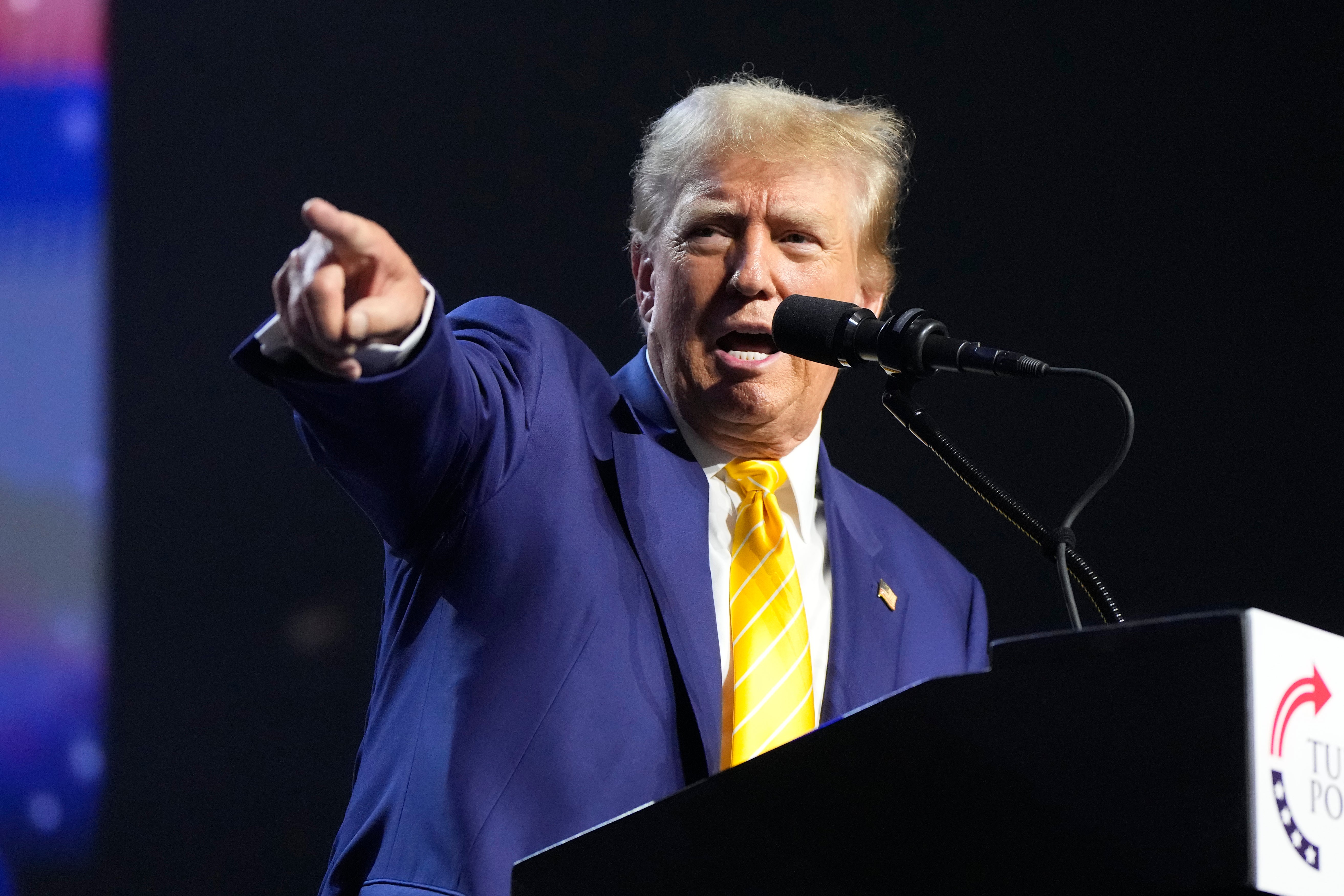Trump’s political U-turns: What he said vs what he did
Three recent U-turns have plenty to tell us about the Republican presidential pretender’s relationship with his public statements, writes Joe Sommerlad


Your support helps us to tell the story
From reproductive rights to climate change to Big Tech, The Independent is on the ground when the story is developing. Whether it's investigating the financials of Elon Musk's pro-Trump PAC or producing our latest documentary, 'The A Word', which shines a light on the American women fighting for reproductive rights, we know how important it is to parse out the facts from the messaging.
At such a critical moment in US history, we need reporters on the ground. Your donation allows us to keep sending journalists to speak to both sides of the story.
The Independent is trusted by Americans across the entire political spectrum. And unlike many other quality news outlets, we choose not to lock Americans out of our reporting and analysis with paywalls. We believe quality journalism should be available to everyone, paid for by those who can afford it.
Your support makes all the difference.Donald Trump has executed three perfect U-turns within the last two weeks, three times acting in complete contradiction to his earlier public statements on three separate issues, his conscience cheerily untroubled.
Having said he “absolutely” wanted to testify at his New York hush money trial, he ultimately opted out.
Having once denounced TikTok as a tool of the villainous Chinese government, he joined it anyway and swiftly picked up more than 5 million followers.
And having repeatedly called for Hillary Clinton to be jailed during the 2016 election, he denied ever having said it, ignoring the mountain of video evidence to the contrary.
In so doing, the 45th president, current Republican presidential contender and now convicted felon inadvertently revealed a pattern of behavior that should give American voters pause for thought, exposing him, yet again, as anything but a man of his word.
Here’s a closer look at those three walk-backs, only the latest examples of Trump failing to live up to his bluster.
Testifying
The defendant baulked at the chance to testify at his Manhattan criminal trial last month despite complaining endlessly that he had no right of reply to the allegations made against him because of the gag order imposed by Judge Juan Merchan.
He had also insisted on the Friday before proceedings began: “Yeah, I would testify, absolutely. That’s not a trial. That’s a scam.”
Doing so would always have been a major risk for him, and he soon began to rein in the macho posturing and prepare the ground for anti-climax.
Two weeks in, he was suddenly telling Newsmax he would only testify “if it’s necessary”.
After the defense had closed its case without calling him, Trump explained to conservative radio that he feared his “great” past might have been used against him.
“Anything I did, anything I did in the past, they can bring everything up, and you know what, I’ve had a great past – but anything,” he said, not altogether coherently.
TikTok
As president, Trump launched a bitter trade war with China, accusing the rival superpower of seeking to undermine America’s interests, steal its intellectual property and compromise national security, offering ByteDance, the company behind TikTok, as a prime example.
“As far as TikTok is concerned, we’re banning them from the United States,” he declared in July 2020.
He issued an executive order a month later that explained: “TikTok automatically captures vast swathes of information from its users, including internet and other network activity information such as location data and browsing and search histories.
“This data collection threatens to allow the Chinese Communist Party access to Americans’ personal and proprietary information – potentially allowing China to track the locations of federal employees and contractors, build dossiers of personal information for blackmail and conduct corporate espionage.”
But Trump’s executive order aimed at banning TikTok in the US was blocked in the courts.
Three years on, he joined the app himself, seemingly part of a strategy to target new voter demographics – in this case, potential Gen-Z conservatives – to back his latest tilt at the White House.
Now, he’s claiming that banning TikTok would just help Facebook: the “true Enemy of the People.”
‘Lock her up!’
As the dust settled on the verdict in his criminal trial, Trump gave a friendly interview to three hosts from Fox and Friends Sunday, during which he protested his innocence and reeled off his customary complaints about the outcome being “rigged,” Judge Merchan being “highly conflicted” and so on.
A more surprising line to emerge was his denial that he had ever called for Hillary Clinton to be imprisoned, something he had said repeatedly at rallies in 2016 but was now blaming on “the people.”
Among the many commentators incensed by the lie was the late-night host Stephen Colbert, who gasped: “That was your whole campaign! Stop it, we remember. We were there!”
In themselves, these three pivots might not appear to be of monumental importance.
You could simply interpret them as the actions of a pragmatic candidate adapting to the ever-changing shape of the political landscape before him.
But taken together, his opponents say, they offer a fresh reminder that Trump is, and always has been, someone prepared to say whatever is most politically expedient in the moment, with no qualms whatsoever about reneging on his promises when the earth subsequently shifts beneath him, no matter how hard his supporters have bought into the rhetoric.
If Trump cannot be trusted to take a consistent line on TikTok, critics ask, why should voters believe his promise to free Evan Gershkovich from a Russian jail or any of the other vote-grabbing pledges he is currently making?
Join our commenting forum
Join thought-provoking conversations, follow other Independent readers and see their replies
Comments